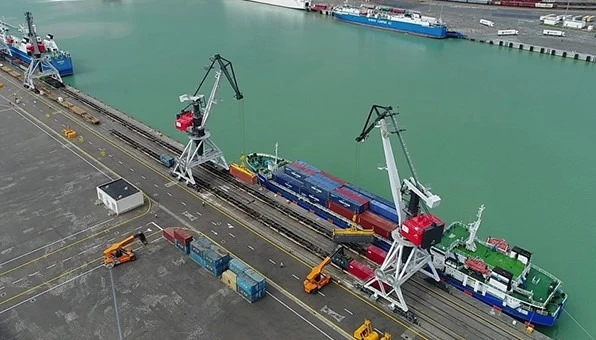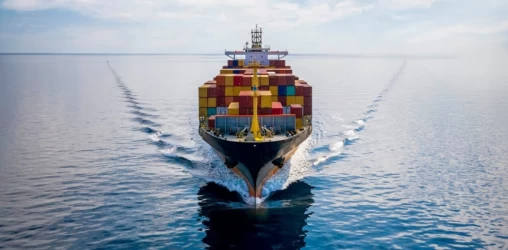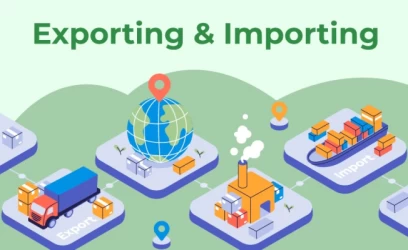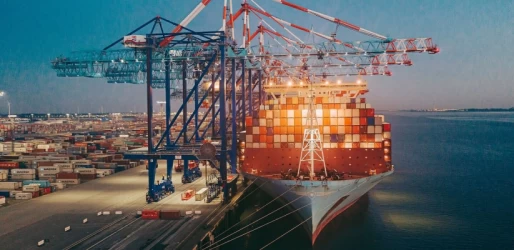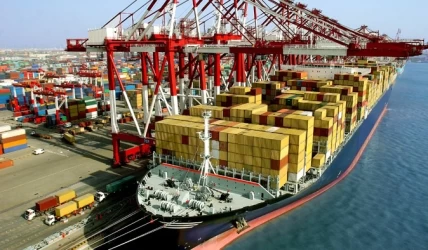Sea freight in the port of Baku
The Port of Baku, located on the western shore of the Caspian Sea in Azerbaijan, serves as one of the oldest and largest maritime transportation hubs in the region. It plays a crucial role in international trade and maritime logistics, functioning as a vital gateway between Europe and Asia. This article explores the significance of the Port of Baku, its infrastructure, economic impact, challenges, and future opportunities.
Historical Overview
Baku has a rich maritime history dating back centuries. Under Russian and later Soviet rule, the port emerged as a central hub for oil exports, contributing significantly to the global oil supply. Following Azerbaijan's independence in 1991, substantial investments were made to modernize the port’s infrastructure, positioning Baku as a key player in regional maritime trade and logistics.
Infrastructure and Facilities
The Port of Baku is equipped with advanced infrastructure and facilities that enable the efficient handling of various types of cargo. Key features include container terminals, storage facilities, and modern loading and unloading equipment.
- Container Terminals: The port boasts state-of-the-art container terminals capable of handling significant volumes of containers. These facilities facilitate trade connections with European, Asian, and other global markets, enhancing the port's competitiveness.
- Rail and Road Connectivity: The Port of Baku is strategically connected to rail and road networks, allowing for rapid cargo movement to inland areas and neighboring countries. These connections are vital for facilitating international trade and expediting maritime transport operations.
- Logistical Facilities: The port provides extensive logistics capabilities, including advanced equipment for supply chain management and real-time cargo tracking. These facilities contribute to streamlined logistics operations and reduced loading and unloading times.
Economic Impact
The Port of Baku plays a pivotal role in Azerbaijan's economy and the broader region. It serves as a key point for imports and exports, significantly impacting the country's economic development and attracting foreign investment.
- Trade Gateway: The port functions as a major center for imports and exports in the Caspian Sea region. A wide range of goods, including oil, gas, petrochemicals, food products, and industrial goods, are transported through this port.
- Job Creation: The port has generated thousands of direct and indirect jobs across various sectors, including transportation, logistics, industry, and trade. These job opportunities contribute to economic development and improved living standards for people in Baku and surrounding areas.
- Foreign Investment Attraction: The modernization and enhancement of port infrastructure have attracted both domestic and foreign investments. Such investments have had a positive impact on various sectors, including oil and gas, maritime transport, and logistics.
Challenges Facing the Port
Despite its strategic importance, the Port of Baku faces several challenges that require effective solutions and further investments to maintain its global competitiveness.
- Climate Change: Rising sea levels and climate change pose potential threats to port operations. Managing climate change impacts and planning for adaptation is crucial for the port's long-term sustainability.
- Infrastructure Limitations: With increasing volumes of international trade, the Port of Baku may face capacity constraints. Developing new infrastructure and improving existing facilities are essential to meet growing demand.
- Environmental Concerns: Like other major ports, the Port of Baku encounters environmental challenges related to maritime activities. Efforts to reduce air and water pollution and improve environmental sustainability are paramount for the port's future.
Opportunities for Growth and Development
Despite the challenges, the Port of Baku has significant opportunities for growth and development in the future.
- Sustainable Development: The port is investing in green and sustainable technologies to minimize environmental impacts. These initiatives include the adoption of cleaner fuels, optimizing energy consumption, and implementing effective pollution reduction strategies.
- Infrastructure Expansion: The development plans for the Port of Baku include constructing new terminals, upgrading existing facilities, and enhancing land and rail transport connections. These improvements will help the port accommodate increasing global trade volumes.
- Digitalization and Automation: Leveraging digital technologies and automation in port operations can enhance efficiency and reduce operational costs. The Port of Baku is investing in smart technologies for real-time cargo tracking and optimized supply chain management.
Conclusion
The Port of Baku serves as a strategic maritime hub in the Caspian Sea region, playing a crucial role in facilitating maritime transportation and international trade. With its advanced infrastructure and geographical advantage, the port is well-positioned to enhance global trade and attract foreign investments. However, to maintain competitiveness and address future challenges, ongoing investments in infrastructure development, digitalization, and environmental sustainability are essential.
If you have any specific questions or need further assistance, feel free to ask!

